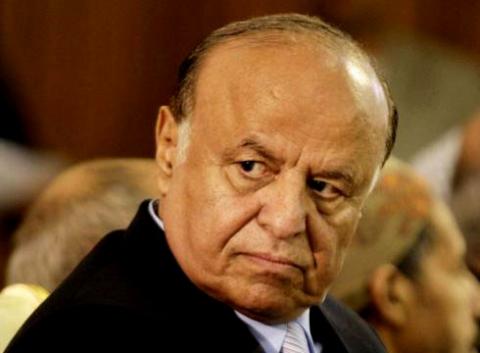The Shiite Houthis Have Officially Taken Over Yemen


The Shiite Houthis announced today that they are dissolving the country’s parliament and replacing it with a 151-member “presidential council” for a two-year transitional period. Hadi and his cabinet are being held under house arrest. Mohammad al-houthi, the brother of Houthi leader Abdul Malik al-Houthi is now the country’s de facto leader.
The conventional wisdom on the Houthis had been that they didn’t actually want responsibility for running the country, just strong influence over the official leaders. That view was either wrong, or Houthi leaders changed their mind after a taste of power.
The takeover, which comes after the failure of U.N.-brokered power-sharing talks, will deeply alarm neighboring Saudi Arabia, which views the Shiite Houthis as an Iranian proxy and cut off economic assistance to Yemen after the Houthis moved into the capital last fall. It will also likely galvanize the campaign of separatists in the heavily Sunni south of the country, which has only been unified since 1990.
The implications for the U.S. aren’t as clear. Not so long ago, President Obama was touting Yemen as a model for how the U.S. could combat terrorism without heavy troop commitments. I would hope that recent events would cause some reflection on whether the U.S. drone campaign undermined support for Hadi and contributed to the country’s instability. But the drones strikes have resumed after a brief pause and there are some hints that despite their “death to America” rhetoric, Yemen’s new rulers might actually be privately accommodating to U.S. strikes against the mutual enemy, al-Qaida.
The fact that the Iranian-backed Houthis and the U.S. are fighting a common enemy in Yemen is interesting to consider in light of the situation in Iraq and Syria, where the U.S. and Iran are in an unspoken alliance against ISIS. Whether or not it’s actually been privately agreed upon, even the perception that the U.S. is cooperating with Iran and its proxies against al-Qaida could make some other U.S. allies in the area nervous. Obama bringing the entire U.S. national security establishment to Saudi Arabia with him last week could have been one attempt at reassurance. I’ll be interested to see if and how Benjamin Netanyahu addresses the notion of U.S.-Iranian common interests when he comes to Washington next month.
Salate

Aden — Yemen Airways has announced new updates to its ticket cancellation (VOID) policy, introducing financial penalties on travel agents in…

Geneva – The United States announced that Yemen will not be among the countries benefiting from a new $2 billion funding pledge for United Na…

Paris — The French humanitarian organization Acted announced that it has delivered cash assistance to nearly 89,000 people affected by displa…